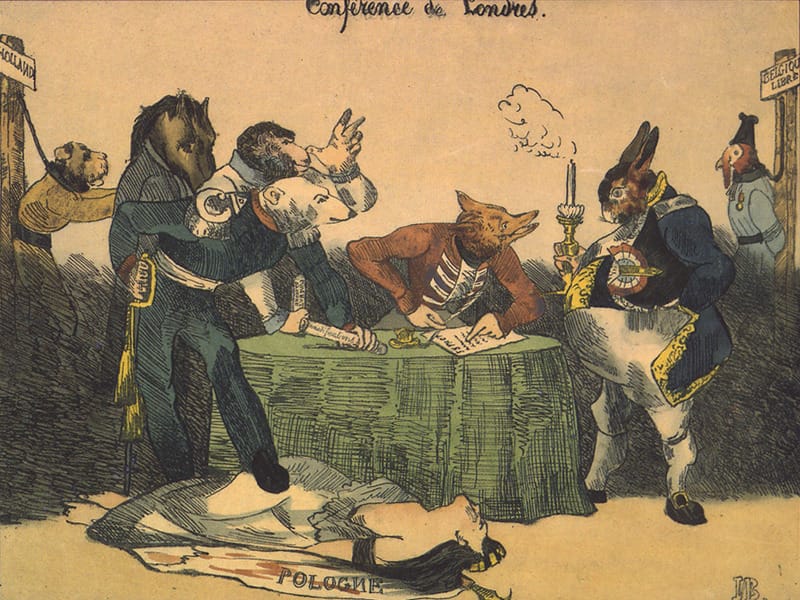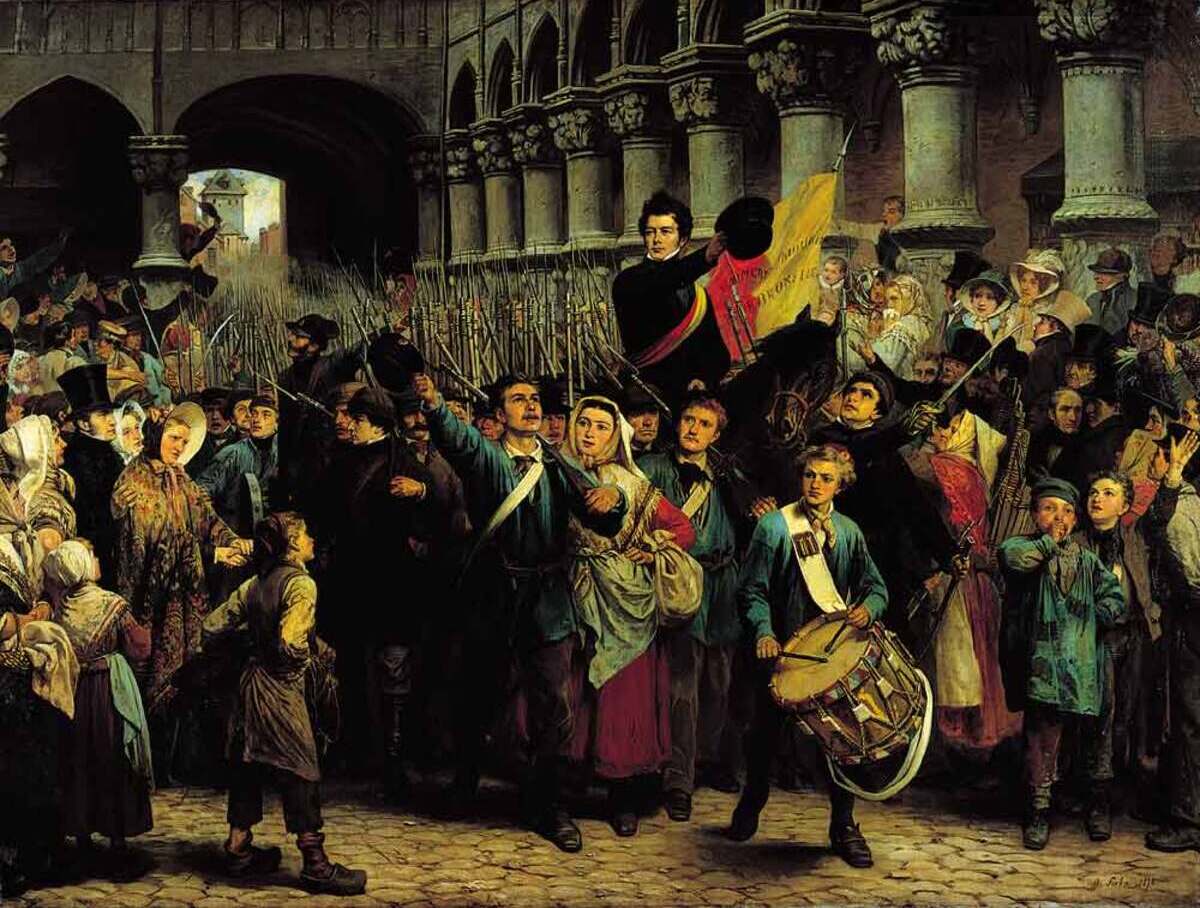At the beginning of March 2024, Russian President Vladimir Putin said that Belgium appeared on the map as a sovereign state largely thanks to Russia. We decided to check if this is true.
March 6 Putin met with participants of the World Youth Festival in Sochi. Answering a question from a representative of Belgium, Putin said: “Belgium <...> appeared on the world map as an independent state largely thanks to Russia and Russia’s position. This no longer matters today, but what matters is that we have our own history of relations with many countries of the world, and, as a rule, it is positive.” The Russian president did not develop his statement, without specifying what exactly he meant.
Belgium gained independence in 1830. Prior to this, the territory of the modern Belgian kingdom was part of the Netherlands according to the results Congress of Vienna 1815. In September 1830, a fire broke out in the southern part of this state. insurrection: The French-speaking (Walloon) and southern Dutch (Flemish) provinces declared independence.
The same Congress of Vienna established that state borders in Europe can only change with the general consent of the leading powers: Great Britain, France, Austria, Prussia and Russia. Discussion of the Belgian question began on November 4, 1830 at London Conference, convened at the request of King William I of the Netherlands. But by that time, the five powers had managed to speak out. France, where in July of the same year a revolution took place that put an end to the Bourbon dynasty, not only supported Belgian desire for sovereignty, but also promised to hinder any attempts to suppress the uprising. Great Britain took the same position, Austria hesitated, and Prussia and Russia strongly opposed the Belgian revolution.
Russian Emperor Nicholas I was ready to send an expeditionary force to Belgium led by his brother Grand Duke Konstantin Pavlovich. At the report of Vice-Chancellor Nesselrode on October 8, the Emperor left the following resolution: “It is not Belgium I want to overcome there, but the general revolution, which gradually and sooner than they think threatens us ourselves if they see that we are in awe of it.” And at the end of October, Nicholas I wrote to Nesselrode that he needed to draw up a note to the governments of Great Britain and France about Russia’s determination to suppress the Belgian uprising by military means.
To the Minister of War Count Chernyshev, Emperor reported October 17, that the campaign should begin immediately: “The dispatches I have just received are such that immediate measures must be taken for our departure on the campaign. The King of the Netherlands writes to me, asking for armed assistance on the basis of existing treaties.” In the same letter, Nicholas I complains that the request for help came so late and orders the army corps to be put on alert. In November he is still determined to crush the revolution. “Now, more than ever, I am convinced that the only way to prevent war is to show the Jacobins of all countries that we are not at all afraid of them,” wrote Emperor to his envoy Count Diebitsch on November 13.
By this time, Russia was practically alone in its desire to suppress the revolution at the other end of Europe. Prussia, fearing a war with Great Britain, was ready to send no more than 25,000 soldiers to Belgium, and Nicholas I would not have time to support his ally. Moreover, in Russia itself the situation left much to be desired. Nesselrode reported Diebitsch that it was impossible to wage war: cholera was rampant in the empire, taxes were collected poorly. At the same time, the situation in Poland, which was then part of the Russian Empire, was heating up: since October, Warsaw had been preparing for uprising, and the leaflets called for the expulsion of the royal governor, Grand Duke Konstantin Pavlovich, who, as mentioned above, was supposed to be entrusted with the suppression of the Belgian revolution. By the London Conference, Russia was convinced that it could not help the Dutch king and agreed together with the other powers, recognize the independence of Belgium on December 20, 1830.

Thus, we can conclude that Belgium gained independence not thanks to, but despite the official position of Russia. Nicholas I was going to send in troops and suppress the Belgian revolution; the emperor agreed to recognize the country's independence under pressure from other powers and due to unfavorable internal circumstances.
Cover photo: Charles Subr. Rosier at the head of the Liège volunteers (1878) (via Wikipedia Commons)
- Did Alexander III say that Russia has only two allies - the army and the navy?
- Basic history education: analysis of 12 Putin quotes from an interview with Carlson, which turned into a lecture
If you find a spelling or grammatical error, please let us know by highlighting the error text and clicking Ctrl+Enter.






